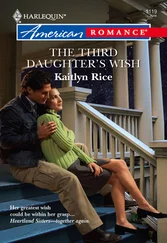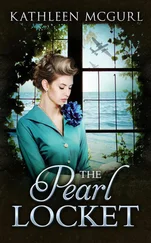The twelve-week scan showed a tiny but recognisable foetus, waving its little arms around, its heart beating strongly, and they were ecstatic.
Then when the bleeding had started two weeks later, it was Tilly who reacted with anger and disbelief, while Ian was the resigned one.
‘How can it be happening again?’ she screamed at him. ‘Twice is enough. How much more bad luck are we due to have?’
‘Shh,’ he said, taking her into his arms and patting her back, as though she was a child crying over a broken toy. ‘It’ll be all right.’
But it wasn’t all right. The bleeding continued, the pain intensified and at three o’clock in the morning she had a miscarriage on the bathroom floor. She sobbed, unable to believe that the same happy little person she’d seen on the ultrasound scan a fortnight ago could now be lying here cradled in the palm of her hand, dead.
Ian hadn’t wanted to see it. She’d buried the poor thing, a boy she thought, in the garden, as though it was a dead pet. Better than a hospital incinerator. At least this way she could feel close to her child. She took herself to hospital as an afterthought, and was advised to come back only if the pain or bleeding continued longer than seven days. It didn’t.
‘We should get some tests done,’ she said to Ian, ‘to find out why I keep miscarrying. Perhaps there’s something that can be done.’ She was thinking of a friend of a friend, who apparently had a rare blood clotting disorder, that meant tiny blood clots formed. Harmless for the mother but fatal for tiny embryos.
‘Sure,’ Ian replied, but there was no conviction in his voice. It was as though he’d given up trying, she thought. And yet he’d been the one who most wanted a family.
They’d drifted apart after that. There’d been no discussion of when to start trying again. Tilly had withdrawn into her grief, for the babies that hadn’t had a chance, for the family she’d hoped and expected she’d have with Ian, for their relationship, which never recovered from this final disappointment.
*
Tilly had been so caught up in memories that she hadn’t realised how far she’d walked. The path had risen well above sea level then dipped down the other side, and she was now walking into a small village that nestled between two high cliffs. Beremouth, it was called, according to signs on the footpath. Tilly felt strung out again; remembering her miscarriages had drained her emotionally. She glanced at her watch. Ken was expecting her back for dinner – but he was cooking a roast and had said it wouldn’t be ready till eight o’clock. It’d take her an hour to walk back, and that left her another hour spare before it became dark. She could do with a drink.
Tilly headed on into the little village and found a small pub overlooking the little harbour. It was the kind of place that sold more wine than beer, and served enticing-sounding light meals to visitors. She went inside and ordered a large glass of Pinot Grigio and a bowl of homemade vegetable crisps, and sat at a small table with a view of the sun sinking over the sea. She’d done the right thing coming to stay with her father, she knew. But she needed to somehow keep her mind off all that had happened. Just wallowing in the memories of her miscarriages had set her back. It wouldn’t take much to give in to it, and she’d find herself curled on the floor, crying her eyes out. That wouldn’t do, in this pub where no one knew her or where she lived.
She knocked back the last of the wine. That had disappeared very quickly. Was there time for another? The sun was just above the horizon now, and with an hour’s walk back, perhaps she should leave, rather than risk having to walk the cliff path in total darkness.
As she left the little pub, she realised there was a small corner shop across the street. Without quite realising what she was doing, she crossed over to it, went inside and bought a screw-top bottle of wine. ‘To have with dinner,’ she told herself, but she’d unscrewed the top before she’d even left the village, and spent the long walk back swigging from it.
Arriving back at Ken’s in almost complete darkness, she dropped the empty bottle into his recycling bin and went inside. A roast dinner would help soak up the alcohol. With luck, Ken would have another bottle open.
Chapter 6 Chapter 6: Ted Chapter 7: Tilly Chapter 8: Ted Chapter 9: Tilly Chapter 10: Ted Chapter 11: Tilly Chapter 12: Ted Chapter 13: Tilly Chapter 14: Ted Chapter 15: Tilly Chapter 16: Ted Chapter 17: Tilly Chapter 18: Ted Chapter 19: Tilly Chapter 20: Ted Chapter 21: Tilly Chapter 22: Ted Chapter 23: Tilly Chapter 24: Ted Chapter 25: Tilly Chapter 26: Ted Chapter 27: Tilly Chapter 28: Annie Chapter 29: Tilly Chapter 30: Annie Chapter 31: Tilly Epilogue Author’s Note Acknowledgements Extract Dear Reader … About the Publisher
Ted Chapter 6: Ted Chapter 7: Tilly Chapter 8: Ted Chapter 9: Tilly Chapter 10: Ted Chapter 11: Tilly Chapter 12: Ted Chapter 13: Tilly Chapter 14: Ted Chapter 15: Tilly Chapter 16: Ted Chapter 17: Tilly Chapter 18: Ted Chapter 19: Tilly Chapter 20: Ted Chapter 21: Tilly Chapter 22: Ted Chapter 23: Tilly Chapter 24: Ted Chapter 25: Tilly Chapter 26: Ted Chapter 27: Tilly Chapter 28: Annie Chapter 29: Tilly Chapter 30: Annie Chapter 31: Tilly Epilogue Author’s Note Acknowledgements Extract Dear Reader … About the Publisher
It was lonely without Norah and the children around, but at the same time Ted appreciated having his home back again, the peace and quiet and the return to routine. How on earth one got used to children being always around, he had no idea. Norah seemed immune to the constant noise and bickering, especially that produced by the two boys. Maybe it was different when it was your own flesh and blood. He supposed he’d never know. The chances of him ever having a child seemed very remote. This had never bothered him before, but for some reason now it made him feel sad.
He hadn’t forgotten his conversation with Norah about Annie. Indeed, he’d spent many a sleepless night running over scenarios in which he finally plucked up the courage to speak to Annie, to say something more than simply ‘thank you’ or ‘good morning’. Endless scenarios, in which sometimes she’d scorn him and other times she’d smile and stay chatting with him, missing her train to prolong it, accepting the offer of a cup of tea. In one fantasy, she leaned towards him, put a hand on his arm, and kissed him, just lightly, on the lips. He’d been shocked at his reaction to this little daydream. He shouldn’t think of her in such a way, not before he’d even spoken to her. It wasn’t right.
And still, Monday to Friday, morning and evening, Annie passed through the station on her regular trains. The year was drawing towards its close – it was dusk by mid-afternoon. Ted made sure the station’s electric lamps were switched on well before Annie arrived for her train. He also lit a fire each afternoon in the ladies’ waiting room, in case she arrived early and wanted to sit in there. It was an extravagance, he knew, as there were so few passengers passing through. But he’d do anything for Annie.
It was a Friday morning, the week after Norah’s visit, when he finally took his chance. Annie alighted from her train wearing a bright red coat, matching hat, black stockings and heeled shoes. Her lipstick was the same shade as her coat. Her hair curled around her face, framing it to perfection. Ted held open the ticket-office door for her to pass through, and almost without realising what he was doing, said, ‘Good morning, Miss Galbraith. Might I say you look very lovely today. That colour brightens the day for all who see it.’
He felt his cheeks blush to a shade that probably matched her coat as she smiled in response – a gorgeous, wide smile, showing perfect pearl-white teeth. ‘Why, thank you, Mr Stationmaster. It’s most kind of you to say so.’
Читать дальше

